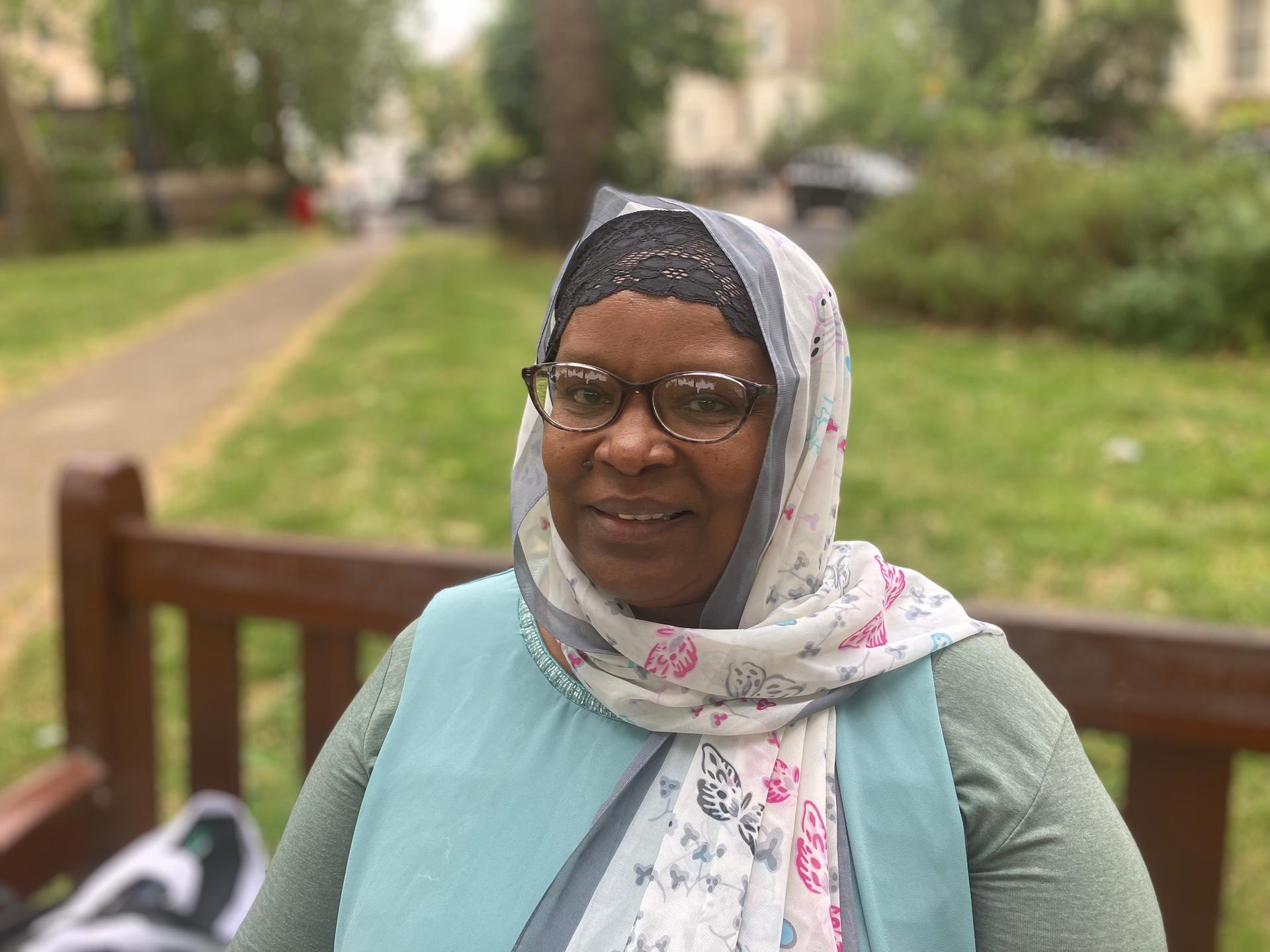Calls for UK to welcome Sudanese refugees the same way as Ukrainians
Sixty-three-year-old Naglaa Sadik Ahmed Mustaf, sat on a park bench in northwest London. She carefully pulled out an envelope containing a worn photo of her son, Mohsin, on his wedding day in 2014.
With Mohsin’s hands delicately placed around his new bride’s waist, the happy couple was all smiles.
But the years that followed that day have been marked by challenge and loss.
“He went through lots of tragedies,” Ahmed Mustaf said.
Tragedies such as losing his first wife, Houda, who died during childbirth.
The most recent tragedy came in mid-April when Mohsin, who lives in the Sudanese capital of Khartoum, found himself trapped in a war zone. Two opposing military generals launched the country into a civil war, which to date has killed over a thousand civilians and displaced more than 2.5 million.
“My son, my flesh and blood, he is there amongst the war,” Ahmed Mustaf said.
When they last spoke, Mohsin escaped the shelling and bombings in Khartoum, and was staying with family in central Sudan. But the situation remains precarious.
Hospitals are barely operating, and electricity, food and water are scarce.
Ahmed Mustaf is a Sudanese British national. An activist and journalist in her home country, she came to the UK as a refugee about 20 years ago and now works as a professional translator. She said that she’s been working tirelessly to get her son and his family into the UK.
“I emailed the Ministry of Foreign Affairs here asking, ‘What can I do? My son is there and he is in a dangerous situation,’” she said.
She said that the British Home Office told her to go to the government’s website for a standard visit visa.
But the British Embassy in Khartoum closed shortly after the conflict began, leaving people like Mohsin stuck in limbo.
Since April, there have been multiple calls for the British government to open up a special sanctuary program for Sudanese refugees looking to escape the conflict, as was done for Ukrainians fleeing the Russian invasion under the Homes for Ukraine program.
But to date, the government has shown no signs of offering Sudanese refugees a safe and legal route to the UK.
“The tragic situation in Sudan has really highlighted the hypocrisy of the British system,” said Mark Davies,the head of communications and campaigns at the British Refugee Council.
Davies applauded the British government for changing its asylum policies within a month of Russia’s invasion of Ukraine to welcome hundreds of thousands of Ukrainian refugees, noting the discrepancy between the government’s treatment of Ukrainian and Sudanese refugees.
“But for Sudanese people seeking to come to this country for whatever reason … it’s that much harder,” he noted.
Activists have accused Britain’s Home Office of operating a “racist” refugee system, but government officials have said their priority is to end the fighting in Sudan.
British Home Secretary Suella Braverman told reporters the government has “no plans” to start looking into safe routes for refugees from Sudan.
In June, a parliamentary committee heard testimonies from Sudanese nationals in the UK, as well as several nongovernmental organizations.
Maddy Crowther is the co-director of Waging Peace, which helps Sudanese asylum-seekers process their asylum applications once they arrive on British soil.
Crowther accused the government of keeping Sudanese nationals “in limbo” for not processing asylum applications quickly enough, leaving applicants unable to work or access health care benefits.
“Why are we not letting them rebuild here in the UK in the ways that we know they can, and making the contributions that we know they can?” Crowther asked.
According to the latest government figures from late March, more than 5,000 Sudanese are already in the UK waiting to have their asylum applications processed, with thousands more in other countries waiting to apply.
We want to hear your feedback so we can keep improving our website, theworld.org. Please fill out this quick survey and let us know your thoughts (your answers will be anonymous). Thanks for your time!
